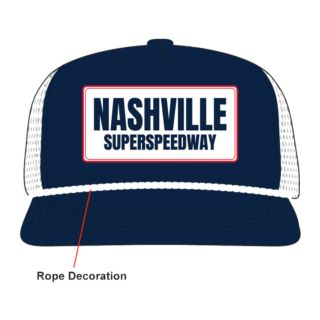Nashville Superspeedway welcomes all guests to its NASCAR events. The Superspeedway provides many accessible camping, daily parking, transportation and seating options to fans. Included in the services are:
- Transportation services free of charge for fans needing assistance moving around the facility
- Wheelchair accessible seating, with companion seats
- Accessible restrooms in grandstands and accessible porta-johns throughout facility grounds
Accessible parking is identified on the Nashville Superspeedway event map. In accordance with Tennessee law, the person the placard or license plate is issued to must be present. State and local officials will be monitoring entry/access to accessible parking. Parking is on a first-come, first-served basis. Depending on your time of arrival, you may be directed to alternate parking if the parking lot becomes full.
Nashville Superspeedway has vehicles to help our guests who require assistance. The vehicles will assist a disabled guest and one companion to designated areas around the facility.
Please be patient. Volunteers transfer guests as quickly and safely as possible. Please visit an Information Services tent for more details.
If you are in need of wheelchair accessible seating and have not made necessary plans in advance when buying tickets, please call the ticket office at 866-RACE-TIX. On event day, please visit Ticket Services or locate your nearest usher.
Guests are encouraged to bring their own wheelchair or ECV (electronic convenience vehicle) for personal use while visiting Nashville Superspeedway, as the track does not provide or rent them.
Access to the upper grandstands' wheelchair seating is available via the Tower elevator. Access is restricted to the disabled guest and one companion.
We recognize the importance of service animals in assisting guests with visual and other impairments. A service animal is defined by the ADA as a dog that has been individually trained to do work or perform tasks for an individual with a disability. Tasks performed by the dog must be directly related to the person’s disability. Emotional support, therapy, comfort or companion animals that provide comfort by being with a person are NOT qualified by the ADA as service animals.
- Service animals must be under the control of the handler at all times.
- The service animal must be leashed, harnessed or tethered at all times, unless these would hinder the service the service animal is trained to perform.
- If a service animal behaves in a way that poses a direct threat to the health or safety of others, has a history of such behavior, or is not under the control of the handler, that animal may be excluded.
Guests are responsible for caring for and supervising the service animal, including toileting (bringing their own pet waste disposal bags), feeding, grooming and veterinary care.
Guests who bring service animals may request wheelchair seating to accommodate the service animal safely and comfortably.



